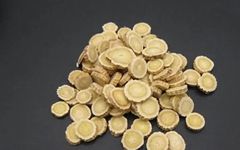Astragalus, also known as Huang Qi (黄芪), is a perennial herb belonging to the legume family. Its roots are thick and yellow, hence the name “Huang Qi”. Astragalus has a long history of use in Traditional Chinese Medicine (TCM) and is believed to have various benefits such as tonifying Qi and blood, benefiting the kidneys, enhancing vitality, and anti-aging effects. Modern medical research has further confirmed and expanded the pharmacological effects of Astragalus. It can enhance the body’s immune system, improve bodily functions, promote metabolism, combat fatigue, and exhibit anti-tumor properties. Additionally, Astragalus can be combined with other herbal materials such as Dang Gui (当归), Goji Berries (枸杞), and Cinnamon Twig (桂枝) to achieve broader therapeutic effects.
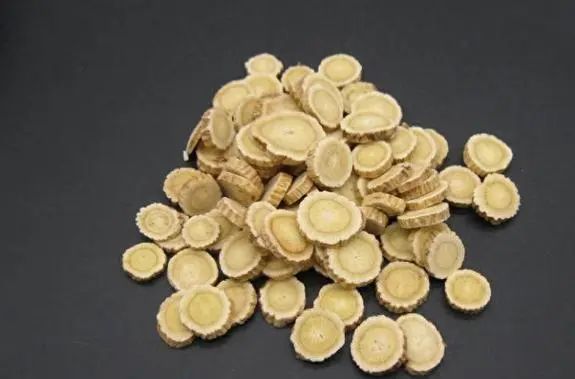
Astragalus is also widely used in clinical treatments. For example, it can serve as an excellent adjunct therapy for conditions such as postpartum weakness, irregular menstruation, and chronic hepatitis. Furthermore, Astragalus can be utilized in health maintenance, such as brewing in water or making soups, to enhance the body’s immunity and disease resistance.
01 Understanding the Nutritional Value of Astragalus
Firstly, Astragalus contains various amino acids, including essential and semi-essential amino acids. Among them, lysine is one of the essential amino acids crucial for human growth, immune system function, and the normal operation of the nervous system. Additionally, Astragalus is rich in proteins, which have high nutritional value and can provide the energy and nutrients needed by the body. Secondly, Astragalus contains a certain amount of fiber, which can promote intestinal peristalsis, improve constipation, and help control blood sugar and lipid levels.

Moreover, Astragalus contains various vitamins and minerals, such as Vitamin C, Vitamin E, calcium, iron, and zinc. These nutrients play important roles in the immune system, skeletal system, and cardiovascular system.
02 Astragalus: A Treasure for Health, Gradually Addressing 6 Issues
Issue 1: Weak Immunity
Astragalus has the function of tonifying Qi and stabilizing the exterior, which can enhance the body’s immunity and improve resistance. Regularly drinking Astragalus tea can effectively address weak immunity and reduce the incidence of colds and other diseases.
Issue 2: Easy Fatigue
Astragalus has a refreshing effect that can alleviate physical fatigue and mental lethargy. Regular consumption of Astragalus tea can effectively improve work efficiency and quality of life.
Issue 3: Poor Sleep Quality
Astragalus has calming and heart-nourishing properties that can improve sleep quality. Regularly drinking Astragalus tea can help individuals fall asleep more easily at night and enhance sleep quality.

Issue 4: Poor Digestion
Astragalus has the ability to strengthen the spleen and stomach, which can improve digestive function. Regularly drinking Astragalus tea can promote appetite and alleviate indigestion.
Issue 5: High Blood Pressure
Astragalus has a hypotensive effect that can help manage high blood pressure. Regular consumption of Astragalus tea can effectively control blood pressure and reduce the incidence of cardiovascular diseases.
Issue 6: Mood Disturbance
Astragalus has the ability to soothe the liver and relieve depression, which can improve mood disturbances. Regularly drinking Astragalus tea can lead to a more pleasant and cheerful disposition.
03 What Are the Contraindications for Drinking Astragalus Tea?
Do not consume in excess: Astragalus is a medicinal herb, and excessive consumption can lead to discomfort, such as nausea and vomiting. It is recommended not to exceed 10 grams per serving.
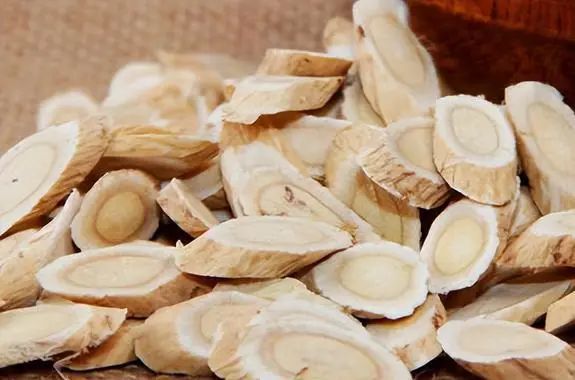
Do not consume on an empty stomach: Drinking Astragalus tea can stimulate gastric juice secretion, and consuming it on an empty stomach may cause stomach pain and bloating. It is advisable to drink it after meals.
Pregnant women should avoid consumption: Astragalus has blood-activating and stasis-resolving properties, which may adversely affect the fetus. Therefore, pregnant women should avoid drinking Astragalus tea.
Individuals with weak constitutions should use with caution: While Astragalus can tonify Qi and nourish blood, those with weak constitutions may experience discomfort, such as dizziness and fatigue. It is recommended to consume under a doctor’s guidance.
Avoid combining with incompatible foods: Consuming Astragalus with certain foods may lead to discomfort, such as tea and radishes. Therefore, it is advisable to avoid these foods when drinking Astragalus tea.
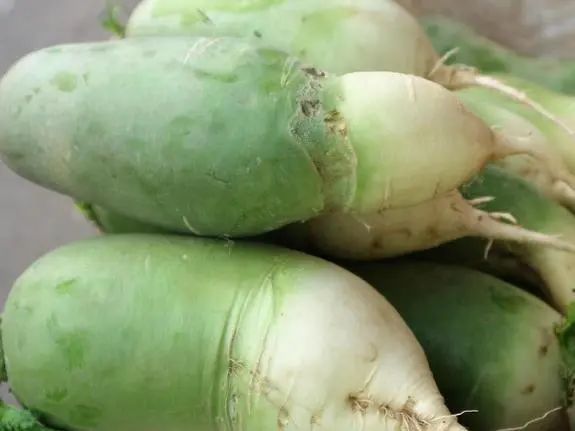
04 Four Ingredients to Pair with Astragalus for Enhanced Nutritional Value
Astragalus with Red Dates: Red dates are rich in nutrients, containing abundant Vitamin C, iron, calcium, and other nutrients. Pairing them with Astragalus in tea can enhance the Qi and blood tonifying effects of Astragalus, improving complexion and boosting immunity.
Astragalus with Goji Berries: Goji berries contain various nutrients, such as Vitamins A, B1, B2, C, E, calcium, and iron. Combining them with Astragalus in tea can enhance liver function, promote detoxification, and improve immunity.
Astragalus with Longan: Longan is rich in glucose, sucrose, proteins, and various vitamins and minerals. Pairing it with Astragalus in tea can nourish blood, calm the mind, and enhance cognitive function, improving sleep quality and memory.
Astragalus with Dang Gui: Dang Gui is a medicinal herb known for its blood-activating and blood-nourishing properties, containing various active components such as volatile oils, organic acids, and amino acids. Combining it with Astragalus in tea can invigorate blood circulation, alleviate fatigue, and improve overall health.
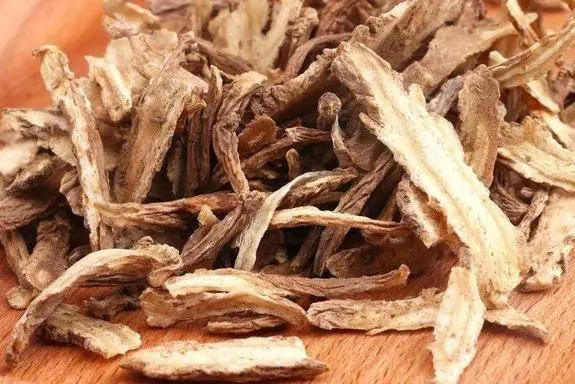
05 How Much Astragalus Should Be Used for Tea?
Generally, the common dosage of Astragalus is between 9-30 grams. However, the specific dosage should be determined based on individual circumstances and a doctor’s advice. When preparing Astragalus tea, it is first necessary to grind the Astragalus into powder and then brew it with water. To enhance the effects of Astragalus, one can add ingredients like Goji berries and red dates. Additionally, honey or lemon juice can be added to taste.
While Astragalus has many benefits, it is not suitable for everyone. Pregnant women, nursing mothers, children, and the elderly should use it under medical guidance. Furthermore, Astragalus has certain allergenic properties, so individuals with allergies should conduct an allergy test before use. In addition to controlling dosage and being mindful of suitable populations, attention should also be paid to the compatibility of Astragalus with other ingredients. Astragalus should not be combined with almonds, Scrophularia, radishes, and other ingredients, as these can reduce its efficacy.
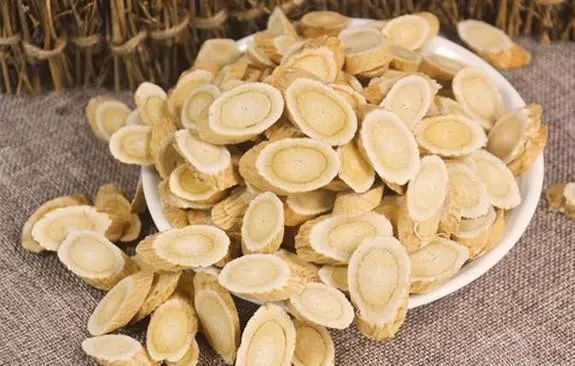
Moreover, Astragalus should not be used concurrently with medications such as epinephrine and ephedrine, as these can affect its efficacy.

